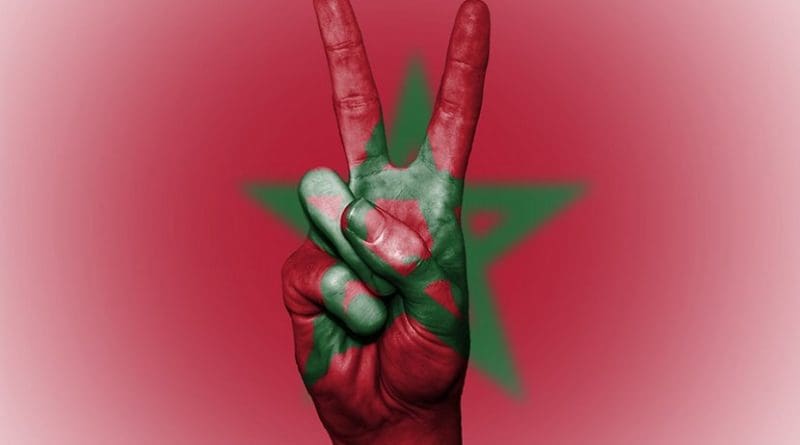Transitional Justice In Morocco: A Successful Human Rights Experience – OpEd
In Morocco, a truth and reconciliation commission (the IER) was set up in 2004 to examine the state-sanctioned abuses that occurred between 1956 and 1999. This was the first commission of its kind in the Arab-Islamic world. It has been criticized on the basis that there have been no prosecutions and so no punishment for those who have confessed to human rights abuses.
However, as Hanny Megally, the Director of the Middle East and North Africa Programme at the International Centre for Transitional Justice (ICTJ) points out, even the process of having a truth commission has taken time. In the early 1990s some of the disappeared were released from the detention centres where they had been held. This was followed by compensation committees set up to make reparations to those who had suffered. In 2006 the IER published the report on its findings. “Each step was presented as the last step before turning the page. The compensation process paved the way for the truth commission. There is no reason not to think that other steps, whether further reforms, the removal of those responsible for abuses from public office or even prosecution, have been completely ruled out.” He added “Each country has its own specificity as to how it will go about addressing a legacy of past abuses. With the Middle East and North Africa, impunity has reigned for the last 40 to 50 years. Any effort to break that wall of silence has to be seen as a positive step forward.”
The story of Morocco is not atypical: the brief history of transitional justice has been one of small steps towards justice. It is not always an option to hold an open and thorough examination of past abuses, and to make those responsible accountable. Timing is of the essence.
Morocco has long held a reputation as a moderate “bridge” state able to link disparate regions and balance international political tensions. Starting in the early 1990s, however, a gradual process of dealing with the past began to take root, culminating most recently in the work of the Moroccan Equity and Reconciliation Commission (Instance Équité et Réconciliation (IER)), established by King Mohammed VI.
Since January 2004, the IER has been working on addressing the terrible legacy of this era by investigating some of the worst abuses in Morocco and arranging reparations for victims and their families. The Commission represents a groundbreaking approach for the entire region and is exceptional in many respects. It had the full blessing and support King Mohammed; its membership comprised many victims of arbitrary detention and torture; it was the only truth commission to ever have possessed the power to grant compensation directly to victims; and it was the first truth commission in the Arab world. For these and other reasons, the IER had the potential for significant regional and international influence, both in the short and long term.
Over the duration of its mandate, the IER has amassed an archive of more than 20,000 personal testimonies from victims and their families, which it has organized in a central database in Rabat. It has conducted a range of meetings, conferences, and seminars around a multitude of issues that are key to understanding Morocco’s past and present. It has also taken the monumental step of holding public hearings to give victims a platform from which to share their sufferings. Throughout its work, the Commission has aimed to document, preserve, and analyze the roots of the crisis in an attempt to help Morocco come to terms with its past. It is clear that the IER’s work had and still have an enduring impact.
The ICTJ worked closely with the Commission in the period leading up to its establishment, encouraging a transparent and participatory process for establishing the mandate and selecting commissioners. The Center provided the Commission with ongoing technical assistance in areas such as conducting public hearings, developing communications and outreach strategies, and providing comparative analyses on reparations and human rights archives. The ICTJ has also been actively engaged with Moroccan nongovernmental organizations, stressing their role in monitoring and critiquing the IER and assisting victims in presenting their submissions.
Morocco’s Equity and Reconciliation Commission (IER: l’Instance équité et réconciliation) was one of the first attempts made in the Arab world to address human rights violations perpetrated in the post-independence period. It also aimed to include female victims of human rights abuse into broader transitional justice programs.
For Morocco, transitional justice is the full range of processes and mechanisms associated with a society’s attempt to come to terms with a legacy of large-scale past abuses, in order to ensure accountability, serve justice and achieve reconciliation. Transitional justice processes and mechanisms are a critical component of Morocco’s framework for strengthening the rule of law. The Moroccan top leadership, political parties and NGOs unanimously voiced their irreversible commitment to reinforce rule of law and total respect of human rights. Morocco has made considerable improvements since the repressive years of lead. Now Morocco has become a leading model and referrence for many Arab and African countries.

